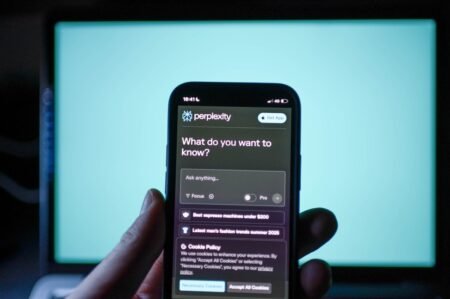A decade ago, Bitcoin felt like the internet in the early ‘90s—niche, experimental, and easy to dismiss. Today? It’s front and center on Capitol Hill.
What began as a decentralized outlier many labeled as fringe is slowly becoming a pillar of America’s economy that many consider the future. People can now invest in Bitcoin through their 401(k)s, IRAs, and brokerage accounts. This year, the U.S. created a Strategic Bitcoin Reserve. Roundtables and summits are being hosted at the White House, and pro-Bitcoin positions are showing up in campaign platforms.
That shift wasn’t accidental. Bitcoin gained momentum because its core values—open access, transparency, and distributed control—offered an alternative when public trust in traditional finance was eroding.
A similar pattern is unfolding today with artificial intelligence.
AI Has a Trust Problem
AI is booming, but so are questions about who controls it. If you’re wondering where your data is going when you use a chatbot, who benefits from it, and why you have to surrender your privacy in the first place, you’re not alone.
According to a new Harris poll commissioned by DCG, 74% of U.S. respondents believe AI would benefit more people if it weren’t controlled by just a few big companies and 65% don’t trust elected officials to steer AI’s development. The public loves the potential of AI; they just don’t trust the players in charge.
That trust gap isn’t new, and Bitcoin confronted it head-on with decentralization: when trust in institutions erodes, the answer isn’t more gatekeepers—it’s building systems that don’t require them. Decentralized technologies rebuild trust by removing human intermediaries, who are often prone to bias, error, or self-interest, and eliminating single points of control. By replacing these flawed gatekeepers with transparent, distributed systems, decentralization offers a more reliable and accountable foundation for trust and confidence, rooted in transparency, resilience, and user-aligned governance.
This shift—from human-controlled to technologically decentralized systems—is what makes trust possible again.
Decentralized AI: The Internet of Intelligence
Unlike Big Tech models controlled by centralized entities, decentralized AI (deAI) is built, trained, and operated across a distributed network, preventing any single party from controlling the system. Decentralized AI (deAI) flips the script on traditional AI by putting power in the hands of users, not corporations. Networks like Bittensor (see Note below) are leading the way by enabling open, permissionless access to AI infrastructure where anyone can contribute models, computing power, or data. This approach levels the playing field for students, startups, and independent developers who would otherwise be shut out of today’s centralized AI giants.
Instead of gatekeepers, Bittensor coordinates contributions transparently across a global network, using blockchain to embed trust and reward real value. The result is AI that’s more open, resilient, and fair, where incentives are based on merit, not monopolies.
Voters Are Ahead of Lawmakers on Decentralized AI
While Americans are still in the earlier stage of learning about AI technologies, they can already intuitively anticipate the advantages of decentralized AI.
The Harris poll of 2,000 US adults found:
- 75% say decentralized AI better supports innovation
- 71% say it’s more secure for personal data
Three out of four respondents say decentralized AI drives more innovation than closed AI, and 71% believe it offers stronger protection for personal data. What’s missing for consumers using AI is transparency and control, and they want to know they’re not just training someone else’s profit engine.
Policy Can’t Ignore Infrastructure and Ownership
Even with strong public support, the promise of decentralized AI depends on whether policymakers understand a simple fact: the structure of a system determines its behavior and outcomes.However, the regulatory conversation around AI is still catching up, and in many cases, seems to be missing a crucial point. We’re seeing big debates around safety and existential risk, but almost no airtime for how the foundational structure of these systems impacts trust. A centralized model run by a few powerful players is inherently vulnerable, opaque, and exclusionary and will ultimately erode trust. To encourage trust, technological adoption and innovation, policymakers should:
- Incentivize innovation in open ecosystems
- Ensure people can benefit from their data
- Avoid enshrining Big Tech dominance through regulation
The same gatekeepers who shaped today’s AI shouldn’t control its future, especially with the public calling for real alternatives. The current Administration has taken a refreshingly pragmatic approach to AI, prioritizing innovation and American competitiveness over heavy-handed regulation and we hope Congress will do the same. Emphasizing private sector innovation and decentralized development lays the groundwork for a more open and resilient AI future.
It’s Not Fringe. It’s the Future
Decentralized AI is a forward-looking solution to one of the most urgent challenges of our time: how to ensure AI serves the public, not just the powerful. Just as Bitcoin moved from the margins to the mainstream, decentralized AI is quickly becoming the foundation for a more open, secure, and competitive AI ecosystem.
The public gets it. Now policymakers must catch up. The choice is clear: protect open networks, reward real builders, and defend the freedom to innovate—or hand the future of intelligence to a few corporate gatekeepers.
Decentralized AI isn’t fringe. It’s the foundation for a freer, fairer digital future. Let’s not miss the moment.
Note: DCG owns $TAO, the native token of the Bittensor network, and may hold interests in projects built on or supporting Bittensor and other deAI ecosystems.
Read the full article here










